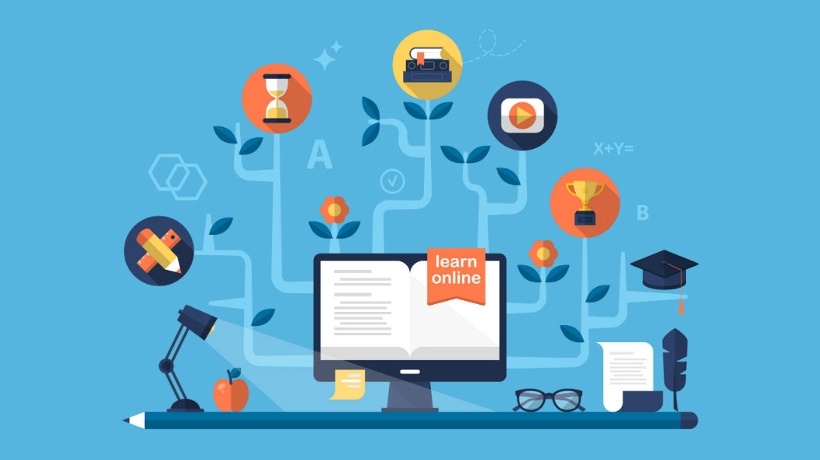One of the most significant advantages of eLearning is that it gives learners the opportunity to become active participants within the eLearning process. While online instructors may hold the knowledge and experience that will greatly benefit the learners, it's also essential that online instructors encourage their learners to become more involved through discussion and collaboration.
10 Top Tips to Transform You Into an Effective Online Facilitator
To accomplish this, online instructors must transform themselves into effective online facilitators, who can engage their learners and enhance the eLearning experience, as a whole. In this post, I will share with you the top 10 tips that can help you adapt a new approach to eLearning... that of effective online facilitator...
- Create an eLearning environment that is conducive to active participation.
In order to provide the best possible eLearning experience for everyone involved, an online facilitator’s primary goal should be to make the eLearning environment comfortable and conducive to active participation. The tone of the discussion should be relaxed, engaging, and informative. In addition, the setting itself should be one in which all learners feel free to ask questions, share experiences, and collaborate to get the most out of the eLearning course. Don't hesitate to use humor, when appropriate, or convey your own personal experiences. The bottom line is that learners need to feel as though they are not going to be judged or ridiculed by others in order to truly benefit. - Rather than lecturing, ask questions to engage the learner.
It may be tempting to create an eLearning course that only involves lectures and/or activities that learners must complete on their own. However, a primary aspect of becoming an online facilitator is to turn lectures into interactive discussions. You must engage the learners by asking them questions that pertain to the subject, so that they are prompted to delve into the topic in their own way and really explore the subject matter that is being discussed. Asking questions will also allow you find out more about your learners, how they learn, and what motivates them. This not only helps to build a connection between you and your learners, but also enables you to customize eLearning materials and strategies to get the best results. - Encourage group collaboration.
To facilitate the eLearning process, it's often ideal to encourage your learners to become facilitators’ themselves. Ask them to share experiences and to allow others to benefit from their own skills and knowledge base. Divide them up into smaller groups and have them actively communicate in order to solve problems or come to their own conclusions when presented with real world scenarios. This will not only benefit every member of the group, but also empower each individual within it. - Make the information you're providing “bite-sized”.
Structure your eLearning strategy in such a way that you gradually introduce information to learners, and make the eLearning courses smaller and more digestible (hence the term “bite sized”). By doing this, you can effectively discuss each topic in depth, and allow your learners to fully absorb the information before moving onto the next subject. You may want to read the 7 Micro-eLearning Techniques To Improve Your eLearning Course Design and/or Are You Already Microlecturing? - Tie the eLearning course into real life scenarios or situations.
If at all possible, you may want to tie your eLearning course or subject matter into real life examples or experiences. This helps the learners to relate more to what is being taught, so that they are able to directly see how it applies within their own life. This also gives them the opportunity to assess how the information they are learning can benefit them, which is an added incentive to become engaged in the eLearning process. I highly encourage you to read the Scenario-Based e-Learning to Improve Learners' Engagement. - Set clear goals, ground rules, and expectations.
One of the key prerequisites for becoming an online facilitator is setting rules and goals beforehand, so that you can structure the eLearning course to achieve the desired outcome. You should also set expectations, in order to provide the learners with a clear sense of what they will be receiving from the eLearning course. This will help everything and everyone to stay on track and will allow you to effectively facilitate your learners’ eLearning experience. - Keep the conversation on the subject at hand.
As is the case with any group discussion or collaborative setting, there may be instances wherein the learners lose sight of the topic. As an online facilitator, it is your job to bring the discussion, questions, and answers back to the subject at hand, so that the eLearning course can retain its intended eLearning value. You should not force the discussion into a certain direction by becoming too actively engaged yourself, but also you should not let it veer away from its structured path. - Talk less and listen more.
To transform yourself into an effective online facilitator, it's important that you understand the need to talk less and listen more during eLearning instruction. Keep in mind that you are there to not only offering your wisdom and experience, but also to help learners become fully engaged in their own learning. Ask questions, and then let the discussion that the learners’ create unfold in order to foster lively debates; as long as they stick to the subject matter, of course. - Act as a guide, rather than as an instructor.
Instead of being an instructor, you should think of yourself as a guide throughout the eLearning process. You are there, first and foremost, to ensure that your learners are actively learning the subject matter and figuring out how to apply it within their own lives. - Ask for feedback and make changes accordingly.
My last online facilitator tip is, undoubtedly, one of the most essential! You should be willing and able to get constructive feedback from your learners, and then utilize this feedback to improve your eLearning approach and course. Ask them what they think of the eLearning experience, and if they feel as though they benefited from the eLearning course. Then, after you've examined your facilitation strengths and weaknesses, make the necessary changes. This will enable you to offer an eLearning environment and eLearning approach that is beneficial for everyone involved.Manage your ILT with the best LMSFind, choose and compare the top Asynchronous Instructor Led Learning Management Systems!
Last but not least, you are more than welcome to read the 25 Tips For Successful Online Course Facilitation.









